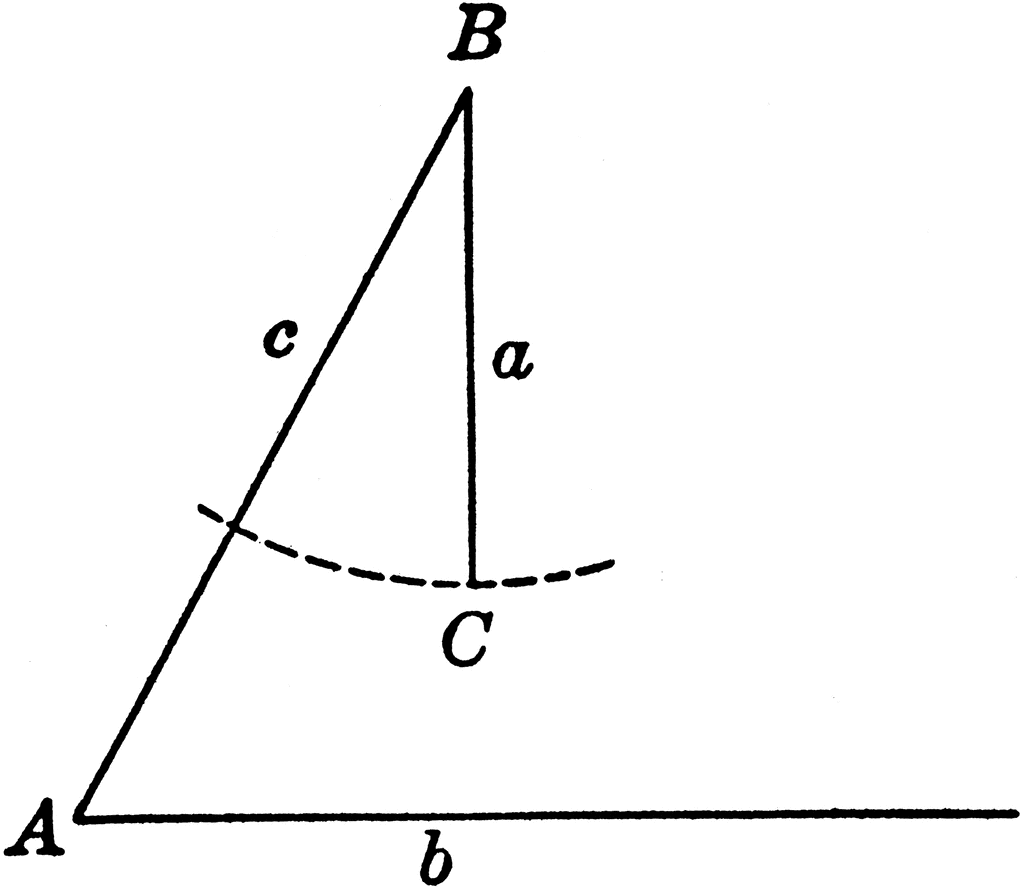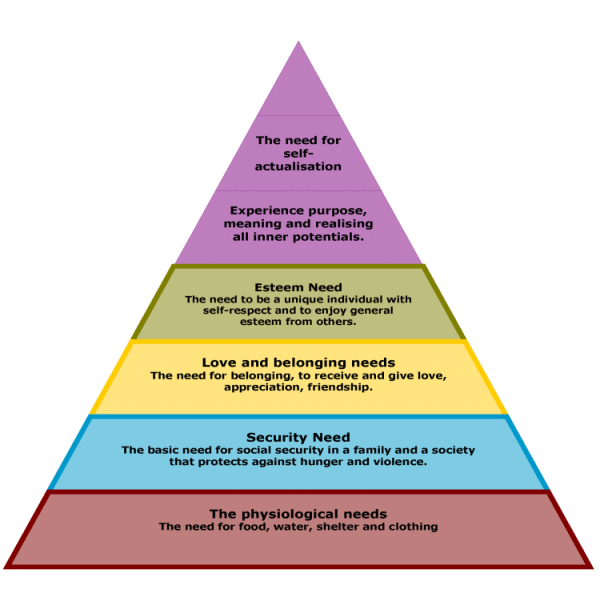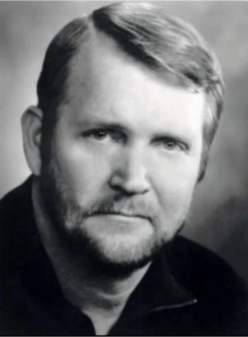Earth Creation?
Perspective: Each Human Being is born inherently with 22 ACRES. Their 22 ACRES consists of their personal world. Through self-responsibility, each person is inherently the master of his or her own genetic world, nobody else’s.
One may be invited onto another’s 22 ACRES – I may be invited onto yours and you may be invited onto mine, and nothing is transgressed. Our 22 ACRES remain intact. Your Mastership can never be taken from you, but, there are ways you can lose it.
If you ever assume possession or authority over any portion of another’s 22 ACRES – yours is gone. You will lose your 22 ACRES – thus – you lose your own Mastership.
I would not be a slave to your life. Nor would I be a master over your life. You are the master of your life as I am the master of mine.
Someone, not master of his or her life, may even take your life; but, only you can throw away your Mastership.
The master’s one and only reasonable commandment:
“Do not do to another what you would not have another do to you.”
Do you know of a better, more moral, ethical or legal version of “The Golden Rule”?
Our quality of life is best defined by our identifiable feelings and their emotional intensities. Freedom, happiness, and peace of mind are always attained by giving those things to someone else. The good feelings that you get to keep are the good feelings that you give to others.
Perspectives of maintaining Mastership



Laws of Mathematics Laws of Physics Laws of Nature
A master knows that except for the laws of mathematics, physics and nature, all authority is assumed authority.
A master upholds civil and criminal laws. A master attempts to eliminate bias or otherwise unfair laws and rules of any kind. Except for civil and criminal laws, you will lose your Mastership when you attempt to enforce any of your customary, traditional, moral or your emotional made-up “I want / I don’t want” rules upon another in their world.
One may share and expose to others opportunities and perspectives, but if one formulates or enforces, without another’s consent, any of one’s own personal rules, standards, principles, prejudices, preferences, ambitions, passions or addictions upon another, one must lose one’s own Mastership. Another must give their consent to play your game by your rules. They must be welcome to quit playing your game when they choose without penalty or consequence. Willingly endorsed contracts are enforceable exceptions.
Traditional God / Tyrant / Ego Obedience
Tyrant?
The traditional “tyrant” (God-model) arrogantly states: “I am the value” – “I am the authority” – “I want obedience” – “I am entitled”. Authoritative Ego / God attitudes and behaviors are functionally synonymous.
Here is a “God Complex” directive that, if adopted, makes you lose your Mastership: “I want you to live by my values in your life with me being the center of those values.”
1. I make rules, that I am above following, for you to obey.
2. You will obey My rules – or
3. I will punish you.
4. You will repent – if not
5. I will eliminate you from my agenda.
6. I will then punish you forever for not serving Me on My terms.
Like God, Ego manifestations project in some behavioral manner: “I am the value” – “I am the authority” – “I want obedience” – “I am entitled”.
Ego / God demands: “You will give me what I want; yield to my will, display attitudes of willful obedience or I will punish you to ultimate degrees. When I can’t punish or hurt you for not conforming to my ambitions, rules and desires, I will project an attitude of anger, hurt, disappointment, and depression. These attitudes project my frustration for reality not obeying me and serving me on my terms. Consequently, if my frustration lingers, I will break off, fire, divorce or otherwise eliminate you.”
If you should live this Ego / God / Tyrant behavior, you will never maintain Mastership over your own life – because you are assuming to be some false value or authority over others. People who behave like this will never remain Masters. They tend to become slaves to “Authority” – the Ego / God game – it’s rules and its punishments. By opportunity, the more you impose your assumed and false authority upon others, the less Mastership you have over your own life.
If this makes you angry, credit your Ego / God as neither likes to be exposed, judged, taken issue with, disobeyed or beaten up.
Addiction


Addiction?
Often, the feelings of anger, depression, frustration, jealousy and hurt over-power an individual. The suffering individual must reprogram the cause – their Ego – and fix the symptoms – their feelings. Many, typically, attempt to escape their painful, self-created reality by doing drugs, over-eating, consuming alcohol, professing religion, et al. Once a feeling is triggered by and attached to the substance or the behavior, the EGO becomes addicted TO THE FEELING. An Ego can only become addicted to a feeling. No feeling, no addiction. Concerning a “love problem” – most often the solution is – no love, no problem.
Because of the Ego’s “mind” (mental / emotional / genetic influence), its own feelings let the mind down and then proceeds to torment it. To numb an Ego’s feelings to reality, an Ego often uses alcohol, drugs, food, sex and other behaviors to anesthetize conscious time / life. The Ego’s healing of frustrated feelings is the Ego’s own self-responsibility – by first identifying the feeling and then by reprogramming the feeling.
When an authoritative Ego wants something, it tends to formulate rules that expects others to obey in order for the Ego to get what it desires. Then, that ego tends to punish others if the Ego doesn’t succeed. When you are the Ego that is disappointed, you often banish others who disappoint you from your life or discipline and punish them. Masters do not buy into that game.
Happiness is not so much getting what you want out of life but to successfully avoid what you don’t want in life. If you can successfully do that, what’s left is pretty good.
The Spirit Of God

The Spirit Of God
God may not exist – but, the spirit of Authority, Egos and Tyrants, definitely do exist.
God may not exist – but, the belief in God definitely does exist.
The presumption: Gods and Tyrants, make rules they don’t have to follow themselves. They threaten and bribe others into obeying them. They demand their subjects to beg forgiveness for their imperfection. They punish those whose attitudes aren’t cloned to their specifications.
Almost all Gods, Egos, Tyrants, Religions, organizations and families say: Be like me – or else.
An Ego (I am the value, the authority, the entitled, the deserver of obedience) operates as if the World was made for it. Like the Ego of animals, it is territorial and possessive. It demands respect which is the precursor to obedience.
The words God and Ego are both capitalized throughout this work to introduce that God and Ego aresynonymous. Typically, believer denial is automatic.
Why Others Need For You To Believe In God

Do You Believe In God?
The reason people demand that you believe in their God is because they demand you allow them to set rules for you to obey in their world and for you to allow them to punish you if you don’t serve them on their terms.
They demand your respect which displays your willingness to obey. They command you to love, sacrifice for and to value them, and for you to serve their assumed authority.
Each individual becomes an authoritarian over some things in his or her life. Each one demands respect and commands the obedience of others to what they assume to be the authority over. When Egos are questioned why, they righteously defend their right to set the rules in their world upon anyone who happens into their atmosphere. Whoever is sucked into the gravity of their Ego must display attitudes of respect, willingness to serve and obedience. This authority behavior resides within the genetic hierarchy of microbes, insects, fish and animals. Man just makes an idol of it and calls it God.
If you fear another person, you fear his ego. If you fear God, Egos like that. If you do not fear God or Egos, they will try to make you fear by threat of punishment.
If you recognize them as an effective threat, they will recognize their control over you, as it is throughout the animal kingdom.
Authority, control and obedience are the names of the god-game. A righteous, God-like / Ego-like authority will often brand someone who refuses to be subject to their control, to be an Anarchist, an Atheist or even a Satan.
A nondependent, un-addict able person is uncontrollable. An assumed authority wants you dependent, fearful and / or “in love” (addicted) so that you may be more vulnerable to it’s control and to the successful fulfilling of it’s agenda. The angrier one becomes concerning this knowledge, the more he or she is exposed to be a tyrant, an authoritarian, a controller; and the more they hunger to be served by selective obedience.
Why do people constantly say, “I believe”?
Believers often state their beliefs to manipulate others.
Each time you say, “I believe”, your Ego has established an authority that your Ego has committed to follow, support and obey.
Your Ego then authoritatively expects others to follow, support and obey your stated belief.
When you authoritatively preach your beliefs to others, your Ego is establishing your values and your rules.
Then your Ego expects others to conform to your values and to obey your rules.
This is why one resists buying into or committing to another’s stated beliefs.
Mastership & Behavioral Consequences

Love = Mutual Values
Preface:
Love: Mutual values. I value me! I value you! I value us! You value you! You value me! You value us! When the values split – people split.
All masters formulate agendas, that abide by the law, within their own 22 acres. Masters enforce laws that are being broken by illegal agendas that, in turn, ill effect the 22 acres of others. Masters don’t interfere with legal agendas that others experience, enjoy or act out. A master upholds that all have the right to different preferences, tastes, and agendas.
Q: How many hours of law did you receive from 1st – 12th grades in school?
Q: None, you say?
Q: Is our current Biblical faith – belief model of conduct working?
Q: Why is 1 out of every 138 people in the United States in prison today?
Q: What if, every child received 1 hour of law per week throughout his or her schooling?
A master solution: Education, not religion. Laws would be defined, by examples. The consequences are exposed and acknowledged by the child’s signed, permanent record. The child would know what would happen if he or she should decide to break the law.
Let the master-child pick the consequence of his or her misbehavior.
In their beginning, let there be a legal education curriculum:
Discuss the identifying of feelings as one does nothing without a feeling.
Know (understand and accept) that every individual has the capacity for bad feelings.
Know that bad feelings cause the destructive and illegal acts that have consequences.
Discuss and address the disobedience to any rules or laws within your responsibility.
Specifically discuss any intentional, destructive or predatory feelings and agendas.
Discuss and clarify a specific crime, indiscretion or illegal deed, in detail.
Uncover and discuss any and all motives concerning a crime or rule breaking.
Discuss the extreme ramifications and consequences such a behavior could produce.
Discuss the need for consequence instead of using the word punishment.
Adults are considered to face consequences as children face punishments.
Discuss a variety of appropriate consequences for illegal or disobedient behaviors.
Select an appropriate consequence for each specific indiscretion.
Discuss any and all reactions the consequence (punitive action) may trigger.
Discuss forthcoming consequences should more violations, similar or otherwise, occur.
Discuss these things before violations, as preventative; and after, as consequential.
The goal is for the consequential behavior to be accepted and agreed upon by all involved.
The agreement is needed to determine that rules are necessary and they are in place.
Agreements must be made concerning the consequences of predictable bad behaviors.
Discuss what should be done if another did the deed; if the perpetrator were a victim of it.
Discuss the unfairness, danger or trouble of the deed and the fairness of the consequence.
Only, if you intend to pay for something that is for sale, do you pick it up.
If you take it without paying for it, what do you think the consequence should be?
What if somebody took it from you, what should the consequences be?
What if they had no intention to pay for it?
What if the something they took, you really needed, wanted, was attached to or liked?
If he or she has thought of a consequence, he or she has listened and knows the rules.
This is not tough love! It’s fair love.
If disobedience occurs and its consequence is inflicted, one thinks more fairly about it.
One will better remember a consequence that he or she designed.
Was his or her agenda truly experimental, based on ignorance, or was it intentional?
If one selects a more severe consequence just to please you, inform him or her it is not the punishment that pleases you, but the appropriate behavior.
Once the consequence is satisfied, don’t let him or her continue to feel guilty. Forgive and forget. If they further feel regret and are not attempting to manipulate or get even, encourage them not to be too hard on themselves. Let them also know they cannot alter your behavior by trying to punish you for correcting them.
The Hypocrite: “Do as I say – not as I do”, is damaging to learning, justice and fair play.
In discussing bad feelings, actions or agendas and their consequences, you show that you value others impute and their decision making capabilities, and that you respect his or her opinions. You are helping them to learn the link between actions and consequences.
When I speak of God, I mean that God who prevented man from putting forth his hand and taking also the fruit of the tree of life that he might live forever; of that god who multiplied the agonies of women, increased the weary toil of man, and in his anger drowned a world; of that god whose altars reeked with human blood, who butchered babies, violated maidens, enslaved men and filled the earth with cruelty and crime; of that god who made heaven for the few, hell for the many, and who will gloat forever and ever upon the writings of the lost and the damned. Robert G. Ingersoll 1833-1899
“Truth”
(Emotionally-Charged Feeling-Coated Facts)

Emotionally
A believer’s “truth” is the believer’s personal, narrow, Ego / God-driven interest concerning an objective fact, in time and reality. If the believer witnessed the fact, integrity would have the fact remain to be the raw objective reality that it is. A raw fact has no agenda or politics. A fact doesn’t care who likes / doesn’t like or accepts / resents it’s being a fact in reality or time. When a believer tries to re-create (spin) the fact in their own image to fulfill their personalized feelings, agendas or interests – then the original objective fact now becomes their new personal and often altered truth. That truth is like an owned and branded fact that they attempt to sell others. When someone tells you “I believe” something, they are probably somewhat lying in the truest sense of honesty and reality.
Typically, when exposing that an unbiased fact has been changed into a bias truth, denial is automatic. When believers tend to test the waters by stating to others “I believe”, they are fishing for support, agreement and acceptance from others. When a curious fish bites into their personalized agenda, the imperialistic believer feels victory – that the initial fact now is accepted by another as their new re-created (spun) truth.
If someone supports their belief or “truth” – that someone supports them. That’s why believers want you to believe what they believe.
Whether one is an idealist who paints beauty where ugly facts lie, or is a critical pessimist who sees something ugly with everything; both make claims for gullible followers to support.
Many religionists, who are not strong, popular nor rich enough to be politically elected to lead people, they coat-tail religion and its authoritative God while projecting those vehicles of authority and consequence to sell their agendas. These people are wanna-be policy-makers. Their agenda is to be like God, to make policy for others to follow and obey. That puts them in power and they seek power and profit over others. When exposed or questioned about this agenda, denial is their banner.
Neither the idealist nor the pessimist tends to welcome the realist. Reality exposed often takes away their authority game. Angry and dramatic denial is often the reaction of both the idealist and the pessimist. Often, they both will now claim to be the realist.
Do you know one true Christian who is a realist? Does he or she claim there was a “virgin birth” and a “resurrection”? Can you define “realist”?
People take a fact, spin it into their truth and then present it as their personalized political platform. When their “truth” is based on “faith” (nonsense) and their faith-based truth is supported by many over time, it becomes “dogma” (commonly accepted beliefs). Believers, like clergy, then seek supporters to give them attention, power and often profit. Then, they deny everything – other than it is God’s (the good guy’s) truth and that you had best believe, follow, support and obey their influence or else God (the bad guy) will get you sooner or later.
Most, who play this truth, belief, faith game, will often denounce and demonize anyone who would dare disagree with their authoritative, fear-based dogma.
Mastership and Hierarchy

Each US citizen is equally entitled to earn a compensated position in a working society. A healthy Ego’s desire to become all that one can be within the boundaries of that position often earns itself a better position.
Mastership may exist, regardless of rank within a structured hierarchy. An Ego’s ability and willingness to mutually accept and understand the rules of the structured hierarchy, profession, task or job will help and maintain a workable and respectful opportunity for each participant. Proven, structured procedures tend to accomplish desired tasks, and procedures, like military tactics, cannot be accomplished democratically. “You cannot take a hill democratically.”
A master, in command of a structured hierarchy, respects all positions equally within the hierarchy by treating each subordinate as a Master. Any one of them will sabotage their personal Mastership when they assume personal authority over another where it doesn’t belong.
A Master’s structured employment contract is his or her agreement to conform to the employer’s rules and accountable structure within the employer’s agenda in exchange for compensation or wage.
Perspective: Your 22 ACRES stops where another’s nose begins. What lies behind their nose is theirs. Their 22 ACRES stops where yours begins. Within civil and criminal law, what is behind their nose is their privacy, as long as they behave within the established laws.
A thief “assumes entitlement” and takes from another without their consent. A thief cannot be a Master. Outside of his or her ownership, a Master respects and never assumes entitlement. He or she always asks, never expects, and doesn’t assume to take anything for granted. One who lives by self-responsibility and conforms to enforceable criminal and civil law remains free to be a Master.
A true Master is a Master of “freedom” (unaccountable time). In a true hierarchy, it’s the required positions of authority that require obedience, not the personal feelings of the Master filling the assumed position of authority.
Outside of the laws of physics, all authority is assumed authority. Specifically, within any society, in time, all authority is assumed authority.
Mastership perspective: If another could bring happiness to someone I love, how could I ever object?
Masters know, understand and accept the enforceable laws that affect them. Masters have an acute sense of fairness and justice. Masters view that Egos / Gods who intentionally break enforceable Criminal and Civil laws, choose their own consequence. If they have “faith” (gamble) at others expense, they deserve to lose. Masters tend to feel empathy, but little sympathy, for those who make selfish, damaging and consequential choices. They understand and accept that life does consist of inter-parasitical survival and competing agendas. Masters tend to be happy as happiness is having the capacity to accept people, places and things the way they are.
A Master does not help others as his job is a thousand times more important. He assist others in helping themselves. He assists to free others who wish for freedom. As masters of their own lives, they will not need him. Masters do judge. Decisions cannot be successfully made without judgment. A Master does not restrict nor condemn anyone, unless they hurt others while operating outside of civil and criminal law. Masters do not worry about nor bother with unenforceable morals.
Unenforceable morals are as abundant as individual desires, the do wants / don’t wants of individual egos. The 22 ACRES is a breakthrough discovery that breaks through the veil of ignorance of the authority code.
The purpose and popularity of the faith and belief game:
Almost all believers support the hope, faith and belief game as they all have personal agendas. They hope to fulfill their agendas in order to fulfill their feelings. They want you and / or others to have faith and to believe in them and their agenda. Their ultimate goal, while usually under a banner of denial, is your obedience and support of their agenda.
They also want you to validate their life. Faith, belief and obedience are the rules of the God / authority game. Logic, nondependent thinking and reason often break the rules that ultimately gets the nonbeliever fouled-out, disqualified, divorced, fired or retired from the believer’s agendas and their interests.
As a believer, does your fearful programming and practice in having faith and blindly believing in God assist you in getting others to obey and support you and your agenda? Masters / thinkers won’t buy into it.
Masters question and think for themselves. They encourage others to question and think for themselves and not to become puppets or slaves to assumed authorities. Ownership and positional authorities are respected and accommodated. Sound civil and criminal law is the same for everyone and masters support laws designed to protect civilization. If a heinous intent and a malicious deed is carried out, why would the law give “grace” to one who is guilty and not to another who is also guilty? Doesn’t “grace” (unmerited gift) make that very law ineffective that is designed to protect society? If everyone were properly educated in the law and its consequences instead of having faith in holy-ghosts, everyone would have picked their own punishment when they committed their crime.
Suggestion: Instead of church and prayer, schedule just one (1) hour per week of law for all students from grades one (1) thru twelve (12). All citizens would know the criminal and civil laws and their consequences.
If they then feel “entitled” to break a law, they also know what they have chosen as a punishment / consequence. Today, the US has about one 1 person out of every 138 citizens in the prison system – which proves that God, church and prayer does not work.
The Control / Ego / God Attitude

Cold Anger?
Perceive one’s attitude of cold anger, distraught, confused, frustrated or of being generally displeased toward you. They manipulate to set their rules to be obeyed by you in order for their and agendas to be fulfilled.
The tyrant’s hidden agendas:
“I want you to live by my values in your life with me being the center of those values.”
“I want to set my rules for you to obey and I want you to allow me to punish you for any disobedience.”
“I want you to serve me on my terms.”
How many times have you bought into, performed or cheered on the success or failure of this behavior?
Life consists of inter-parasitical competition / competing agendas. It is senseless for you to be depressed or upset over agendas you have no control over.
A solution for frustration and / or depression is:
Either learn the knowledge to gain the control or learn to accept things the way they are.
A philosopher is one who dares to diagnose society and expose the tools of authority.
Knowledge is not the power. Applied knowledge is the power.
Knowledge, like water, tends to seek its own level.
During legal competition, illegal theft and war, you attempt to prevent others from doing to you exactly what you intend to do to them.
The paradox of war: In war, you try to do to another exactly what you try to prevent him or her from doing to you. You try to prevent the enemy from killing you while you try to kill as many of the enemy as you can. The harder you cheer this mentality, the harder it will be for you to become a master. Masters don’t initiate pain, theft, nor murder. Masters do tend to stand against those who do.
Mastership: “Do not do to others what you would not have them do to you.”
Lies result when popular or personal agendas become more important than facts. When our youth see clergy rob and steal from the gullible public using lies, words of extortion, blackmail, and scream in your face fear tactics, how do you expect them to turn out?
“One stroke of an artist’s brush may appear distasteful, even hideous; but it, along with a combination of others may be responsible for a masterpiece.” (GWD)
Question: Is there a God or just Ego-oriented feelings?
Is there a tangible God? There are real identifiable (do want / don’t want) “feelings” and their “emotion” intensities. Survival-oriented animal’s exhibit limited behaviors that are predictable in their quest for their feelings to be satisfied by reality.
People, who compete for reality to conform to their feelings, often act as if or declare their feelings to be sacred – thus their manifestation of their God. They tend to introduce to others consequence or a fear level if their feelings are not satisfied. They readily endorse a “God-fearing” concept. This is one of the many reasons why the concept of God cannot be agreed upon. A common agenda is successful when supported by mutual feelings – or at least no opposing feelings.
People tend to hide their feelings, behaviors and agendas from other people to prevent those others from disciplining them or spoiling their addiction, passion or agenda. People go to church and other “help organizations” to help discipline their “evil / destructive” feelings. Fearful and guilt-ridden people tend to preach to others in practice of supporting their own discipline habits. They preach so that their own behavior won’t make mistakes that often lead to painful consequences. The “evil” feelings are there and if they are not checked at the behavior level, “conditioned response” makes them realize that eventually they may pay some consequences.
What some are afraid that you will do is what they would do if they were in your place.
That scares them so they preach to you to not become them.
When someone is confronted about the evils of God, they react as if it were their feelings that took the hit. They defend God as if He were they and they were He. They don’t care what God did – He is innocent. Above all, most defend God as they were defending themselves. They argue to establish that their Ego, the commander of their feelings, like God, is the authority and above it all.


God / Ego

Observe a God scenario. Put in this “feelings formula”. Does it fit? GWD
What one person, who you know, would be impacted if sent to this site?
Comments? Questions?
